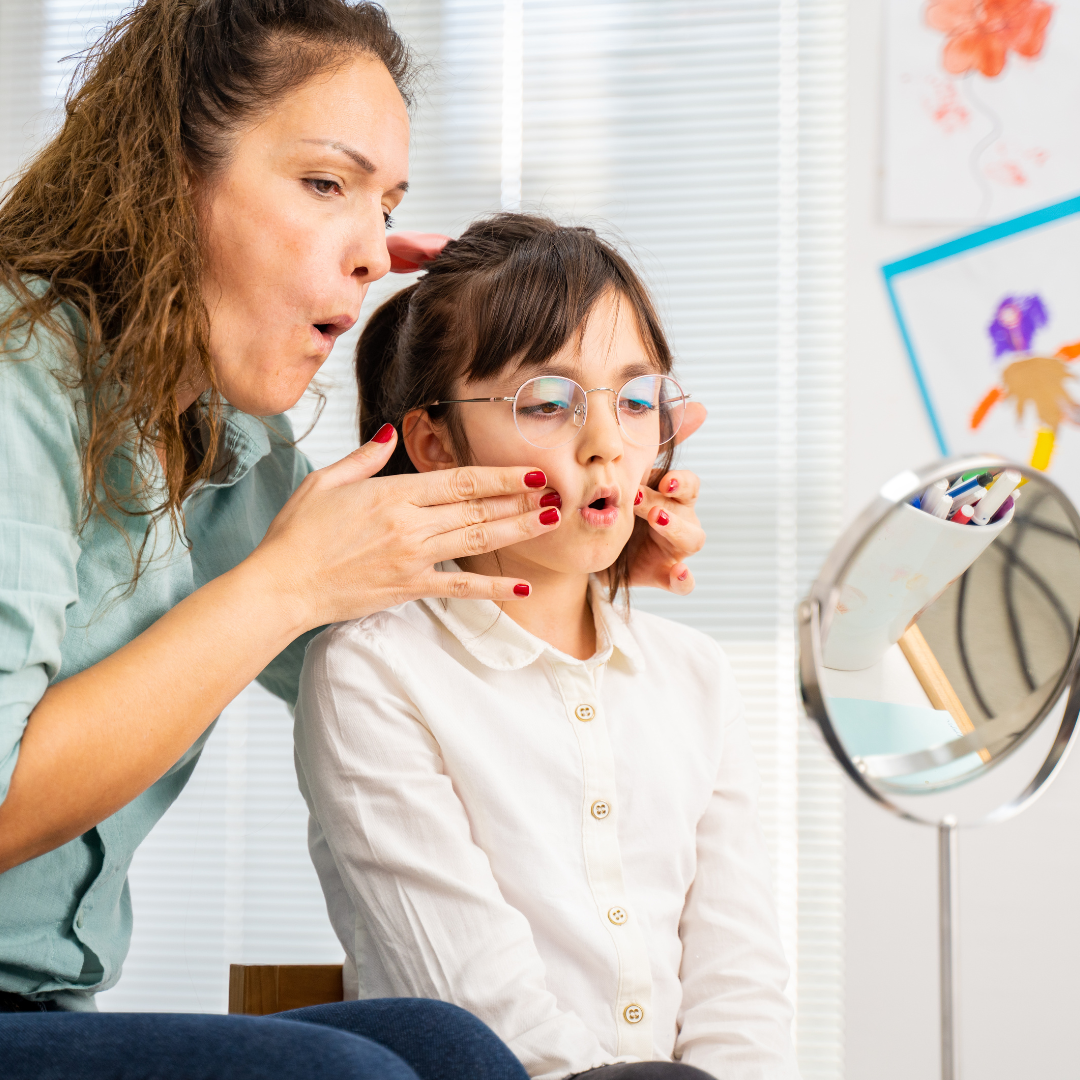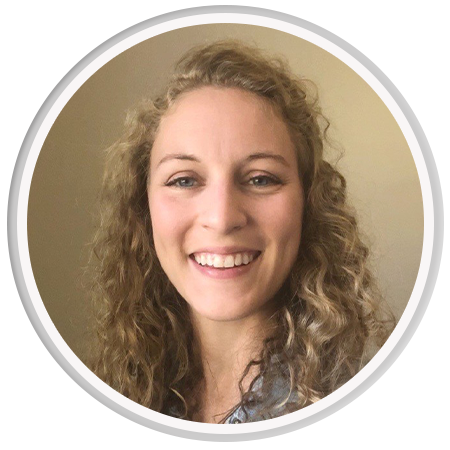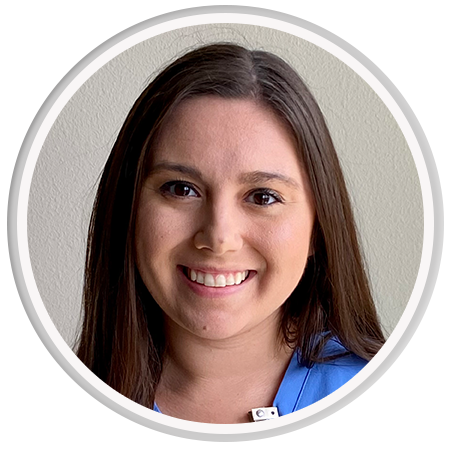Speech Therapy at Inner Circle Autism Network
Enhance communication skills with speech therapy at Inner Circle. Our experienced speech-language pathologists create personalized plans for success while collaborating with your child’s behavior therapy team.

What is Autism Speech Therapy?
Autism speech therapy helps children with autism improve their verbal, nonverbal, and social communication.
Inner Circle’s speech-language pathologists (SLPs) evaluate and assess your child’s speech and language needs to create an individualized treatment plan tailored to the child’s interests and abilities. Treatment addresses issues including speech, language, communication, and swallowing disorders.


Speech and Language Challenges in Autism
Children with autism can face a variety of speech and language challenges that affect their ability to communicate with others and express themselves through speech.
Common speech and language challenges include using repetitive language, uneven language development, and using a robot-like or sing-song voice when speaking.
Overcoming these challenges is at the core of autism speech therapy.
Benefits of Speech Therapy for Children With Autism
Inner Circle’s speech therapy services help children with autism improve their speech and language communication skills.
Enhanced language comprehension and expression, improved speech clarity and articulation, and the development of social skills are central to speech therapy treatment plans designed to help children with autism communicate effectively.


Our Approach to Speech Therapy at Inner Circle
Children with autism who receive speech therapy services are evaluated and assessed by Inner Circle’s qualified speech-language pathologists (SLPs).
Every child receives an individualized treatment plan and personalized goal-setting that incorporates family and caregivers. Ongoing monitoring and adjustments ensure that every child’s treatment plan is optimized to meet their specific goals and overcome speech and language challenges.
By offering speech therapy within our centers, your child will receive ABA and speech therapy collaboratively. Our SLPs work directly with your child during their ABA therapy sessions to ensure optimal progress across communication skills development.
Meet our Dedicated Speech-Language Pathologists

Maggie Bodemann
Speech-Language Pathologist | Springdale
Maggie is a native Arkansan and has lived in Northwest Arkansas since 2008, when she moved to Fayetteville to obtain a bachelor's degree and master’s degree in communication sciences and disorders from University of Arkansas. She has previously worked at Springdale Public Schools, where she had experience treating and evaluating individuals with articulation and phonological disorders, receptive and expressive language disorders, fluency disorders, pragmatic language disorders, Autism Spectrum Disorders, intellectual disabilities, Down Syndrome, Cerebral Palsy, and traumatic brain injuries.
During her time working in public schools, she worked collaboratively with a BCBA providing applied behavior services for students at the school. She took an interest in behavior analysis and joined Inner Circle Autism Network in 2022 to provide speech and language services for our amazing clients. In her free time, she enjoys spending time outdoors gardening, hiking, camping, and enjoying the beautiful lakes and rivers around the area. Maggie believes that all individuals should have the opportunity to communicate their wants, needs, feelings, thoughts, and ideas with others, and it is her goal to provide our clients with the tools and support needed to share their stories with the world.

Vanessa Stewart
Speech-Language Pathologist | Oklahoma City and Edmond
Vanessa is a Licensed Speech Language Pathologist in the state of Oklahoma and Texas and joins Inner Circle at our Oklahoma and Edmond locations. Vanessa has a wide range of experience with all ages; toddlers, school-aged, adults, and geriatric populations. She has worked in hospitals, schools, nursing homes, private speech and ABA clinics. She has been in the field since 2021.
Vanessa enjoys collaborating with BCBAs, RBTs, and families to come up with the best treatment plan for her clients that is also meaningful to their everyday lives. Outside of work, Vanessa enjoys spending time with her fiancé, friends, and her dog, Tucker. She enjoys exercising and also enjoys ALL sports (football and basketball the most)!
Frequently Asked Questions for Speech Therapy
What qualifications should a speech-language therapist have?
A speech-language pathologist (SLP) has a master’s degree and has completed supervised clinical experience through hands on training in diagnosing and treating individuals with communication disorders during their graduate program. After passing a national exam all SLPs must obtain a license in the state they are practicing in. Additionally, they must maintain a number of continuing education hours to maintain their licensure.
How are a child's speech and language skills assessed for therapy?
Inner Circle’s SLPs will thoroughly review your child’s medical history, developmental milestones, and current concerns before administering standardized tests that are specifically designed to assess various aspects of communication. These tests may include measures of speech sound production, receptive and expressive language skills, fluency, voice quality, and social communication abilities. From the results of these tests an individualized treatment plan will be developed to address your child’s unique speech and language needs.
What are some common goals of autism speech therapy?
Common goals include:
- Increasing functional communication
- Improving speech articulation
- Enhancing understanding of language
- Expanding vocabulary, sentence structure, and grammatical skills
- Developing social communication skills
- Fostering social communication skills including turn taking, eye contact, and understanding conversational rules
- Expanding social engagement
- Reducing communication anxiety and repetitive behaviors
- Improving narrative and storytelling skills
- Enhancing nonverbal communication such as body language, gestures, facial expressions, and eye contact
- Increasing speech fluency
Can speech therapy help with social communication skills?
Yes! Children with autism often struggle with social interaction and understanding social cues. Speech therapy aims to enhance their ability to engage in conversations, understand non-verbal communication, interpret emotions, and appropriately respond in social situations.
What is the difference between expressive and receptive language skills?
Expressive language refers to a child’s ability to express their own thoughts and feelings through speech.
Receptive language refers to a child’s ability to understand what is being communicated to them through speech.
Inner Circle’s comprehensive speech therapy programs address both types of language skills in accordance with a child’s needs.
What are alternative and augmentative communication (AAC) methods, and how are they used in speech therapy?
AAC refers to any system or method of communication used to supplement or replace verbal communication for children who have difficulty with speech or language.
Some common AAC methods are:
- Picture Exchange Communication Systems (PECS)
- Communication Board or Choice Board
- Voice Output Communication Aids (VOCAs)
- American Sign Language (ASL)
- Text-to-Speech Apps or Devices
How long does autism speech therapy typically take?
At Inner Circle, we recognize that every child is unique and as such requires an individualized approach to treatment. This means that there is no magic formula or quick answer and the length of treatment depends on several factors including skills, needs, goals, rate of progress, attendance, intensity of services, and other factors. Speech therapy can range from several months to several years.
Your child’s SLP will medically recommend a treatment plan which will include the number of visits recommended per week or month. Often insurance will also have limitations on the number of visits allowed in a calendar year.
Can I get both speech and ABA therapy on the same day?
Absolutely! We want to make things as easy as possible for you. This is why our speech program is offered at the same time as regularly scheduled ABA therapy. An SLP will evaluate, design, and implement your child’s speech treatment plan while maximizing collaboration with the ABA team.
How often should my child attend speech therapy sessions?
The duration of speech therapy depends on several factors including skills, needs, goals, rate of progress, attendance, intensity of services, and other factors. Speech therapy can range from several months to several years.
What does a typical speech therapy session for children with autism involve?
A typical speech therapy session can vary depending on your child’s age, needs, and goals as well as the specific approach and techniques used by the SLP.
A session typically begins with a warm-up activity or review of previously mastered skills and then the bulk of the session will be dedicated to working on specific goals using a variety of activities and materials such as games, toys, computer programs, and interactive apps to engage your child’s interests and abilities.
Can speech therapy help with nonverbal communication skills?
Yes! Nonverbal communication is an important part of any child’s social and communication skill development. Nonverbal communication includes body language, facial expressions, eye contact, and gestures. Nonverbal communication is incorporated into every speech therapy session.
How can parents and caregivers support their child's speech and language development at home?
Your child’s SLP will provide updates on progress, demonstrate techniques for home practice, and offer strategies for facilitating communication and language development outside of therapy. This may include specific activities, exercises, or strategies to work on between sessions to help with generalization and carryover.
How much does autism speech therapy cost, and is it covered by insurance?
Yes! Below is a current list of our current in-network providers, however if your insurance is not listed, we will work to find you options for services.
- Arkansas Medicaid
- Summit Community Care
- Empower Healthcare
- Arkansas Total Care
- CareSource
- Blue Cross Blue Shield
- United Healthcare
- Cigna
- UMR
- Soonercare
- Qualchoice
- Oklahoma Complete Health
- Humana Healthy Horizons of Oklahoma
- Aetna Better Health of Oklahoma
Costs associated with speech therapy depend on a number of factors, including the treatment plan, number of sessions, and your insurance coverage.
What are some signs that my child may benefit from speech therapy?
There are various signs that indicate a child might benefit from speech therapy. Some signs to look for are:
- Limited speech development
- Difficulty understanding language
- Articulation or pronunciation challenges
- Stuttering
- Limited social communication skills
- Language delays
- Oral motor or feeding challenges
- Repetitive language
- Minimal language use
Will speech therapy improve my child's ability to make friends and interact socially?
Yes! Speech and language communication skills are essential components of friendships and social interactions. Inner Circle’s speech therapy programs are designed to give your child the tools they need to communicate in social situations.
Can speech therapy help children with autism who are nonverbal or minimally verbal?
Yes! Minimally verbal or nonverbal children can greatly benefit from speech therapy programs designed to help them learn and develop speech and language skills used in communication.
How is progress measured in autism speech therapy?
As with our treatment plans, progress is measured on an individual basis. Regular progress reporting helps our speech-language pathologists (SLPs) adjust plans as needed and monitor your child’s progress.
Can speech therapy address issues with articulation and speech clarity?
Yes! Articulation and speech clarity are two of the main components in Inner Circle’s speech therapy programs.
